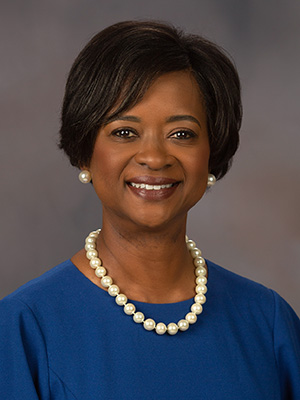Residency Director’s Survey Reaffirms MD Graduates’ Readiness

Each year for over a decade, the Office of Medical Education has administered a survey of the residency directors of programs where our recent graduates matched. This short survey sought to gain the perspective of program directors on how prepared our graduates are for their first year as a resident. The results of the data were reviewed annually by various stakeholder groups to help evaluate the medical education program. Like each prior year, OME administration and the Curriculum Committee are among those who are considering the results from 2021-22 survey. These results, however, come from a new pilot survey, the Resident Readiness Survey, administered by the Association of American Medical Colleges (AAMC) with 77 participating medical schools. This new national process offers opportunities for comparisons while previously, we only had access to our school data. The response rate was 46.2%, a 4.6% increase from the previous year.
The AAMC’s Resident Readiness Survey aims to help program directors by eliminating the need to complete numerous school specific surveys. The AAMC saw multiple benefits to medical schools, such as (a) assisting schools in their continuous quality improvement (CQI) efforts, (b) assisting schools in assessing their effectiveness in preparing students for residency, (c) helping student affairs deans evaluate the utility of their Medical Student Performance Evaluations (MSPE) to program directors, and (d) reducing staff time by eliminating the need for school-initiated surveys.
Data results reaffirm the strength of our medical education program. For PGY-1 students who graduated from UMMC, 63% met overall performance expectations; 36% exceeded overall performance expectations; and 0% (no resident) did not meet overall performance expectations. Residency directors answered 17 items evaluating performance in specific areas as listed above.
Our residents performance was exceptional on many of the items with 99% of residents having met or exceeded expectations on three of them [(a) demonstrated professionalism when interacting with health care professionals and staff, altruism, compassion, honesty, confidentiality, and integrity, (b) demonstrated professionalism when interacting with patients and family members and other members of the health care team, and (c) performed overall tasks and responsibilities in an organized and timely manner with appropriate attention to detail]. Ninety-five or 96% of residents met or exceeded expectations on an additional three items [(a) demonstrated patient-centered interview skills, (b) interpreted results of basic studies and understood the implications and urgency of results, and (c) used communication strategies for safe and effective transitions of care and handoffs]. Overall, for 15 of the 17 items, greater than 90% of residents met or exceeded overall performance expectations.
With high scores (greater than 85%) on all but one of the 17 items, we may consider items for which residents failed to meet expectations as a place for ongoing improvement. For 10 of the 17 items, no resident failed to meet expectations. For the seven items where at least one resident failed to meet expectations, three items had only one such resident and the items were: (a) demonstrated patient-centered interview skills, (b) entered and discussed orders and prescriptions, and (c) prioritized a differential diagnosis. One item had two residents who failed to meet expectations (documented encounters in patient record), and three items had three residents who failed to meet expectations [(a) performed a clinically relevant and appropriately thorough physical exam pertinent to the setting and purpose of the visit, (b) performed expected procedures of an entry resident, including obtaining consent for those procedures, and (c) provided oral presentation of clinical encounter].
An additional two items addressed the Medical Student Performance Evaluation (MSPE) or Dean’s Letter. Fifty-one percent of the responding residency directors recalled the MSPE for the specific resident, down from 62% last year. Only five program directors (7%) did not find the information from the medical school useful. Last year, 4% did not find the information from the medical school useful.
While evaluating the quality of a medical education program takes several factors into consideration, the results from the Resident Readiness Survey serve as a strong indicator of its strength. Our medical school adequately prepares its graduates for residency programs. This is reassuring as we celebrate the recently completed 2024 Match.


